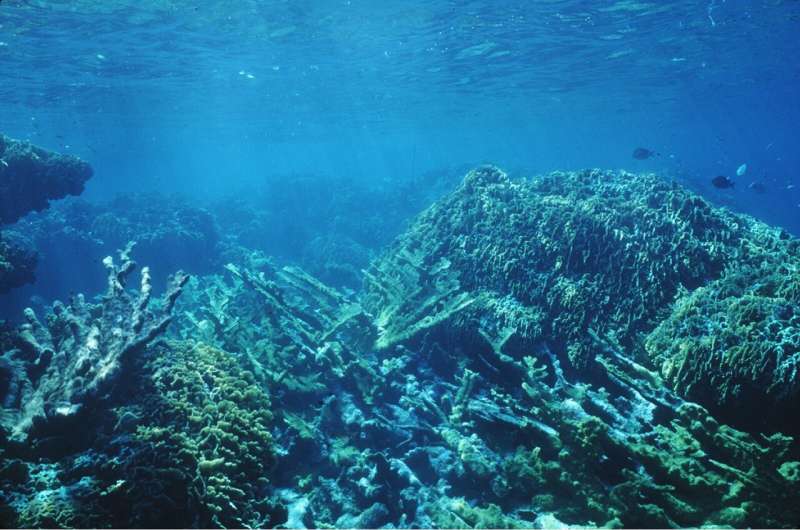
Tropical coral reefs could end up being one of the first victims of climate change. The marine diversity hotspots are threatened and declining as a result of global warming, ocean acidification, a deterioration of water quality, as well as diseases of reef-building organisms, and their growth is unable to keep up with the projected rise in sea levels.
Findings, now published in Scientific Reports, are based on an examination of 22 drill cores collected from the Belize barrier reef and atolls, the largest reef system in the Atlantic Ocean. The research focused on identifying and dating coral growth and accretion rates over the past 9,000 years.
Professor Eberhard Gischler, head of the biosedimentology working group at Goethe University Frankfurt’s Institute of Geosciences, and other scientists reexamined the specimens Gischler and Dr. J. Harold Hudson, Miami, U.S., had collected between 1995 and 2002 .
Having dated the corals, the team then identified the distances between them in the drill cores to estimate their growth rates. “Our data show that coral accretion rates in Belize decreased during the Holocene. While at 3.36 millimeters per year, the average accretion rates of reef margins are in the same range as other regions in the western Atlantic, they are somewhat lower than those in the Indo-Pacific.”
This has both an important impact on the future of tropical island-nations especially, which are either based on or protected by coral reef structure, and is also interesting in the context of climate change, Gischler explains. “The growth rates are at the lower end of the United Nations’ Intergovernmental Panel on Climate Change’s (IPCC) predictions of future sea-level rise until 2100.”
The research confirms the drastic decline in live coral in the Caribbean, where many reefs are no longer dominated by corals, but fleshy algae as well as weedy, generalistic taxa. Looking at the evolution over time, Gischler and his colleagues found that stress-tolerant, reef-building corals predominate in the older sections.